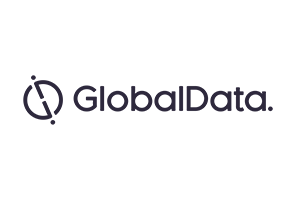At the 2017 American Society of Clinical Oncology (ASCO) conference held in Chicago, Illinois, data was released by Johnson & Johnson (J&J) for its prostate cancer drug Zytiga (abiraterone acetate), which is expected to change the treatment paradigm for prostate cancer.
Zytiga is currently approved for the treatment of metastatic castration-resistant prostate cancer (mCRPC). However, It has also been proved able to improve survival rates in hormone-naive prostate cancer (HNPC) when administered in combination with androgen deprivation therapy (ADT) and prednisone. Zytiga's label extension in the hormone-naive setting, where ADT represents the standard of care, could strengthen the position of the drug as the area has not seen any advances for more than 20 years.
In recent years, Zytiga has been affected by competition with Pfizer's Xtandi (enzalutamide). The approval of Xtandi in the mCRPC setting in 2012 resulted in dramatically reducing sales of J&J's agent. There is little differentiation between the two oral drugs, which have similar mechanisms of action and efficacy profiles. According to key opinion leaders interviewed by GlobalData, the main advantage of the second-to-market Xtandi is that the drug does not require co-administration with prednisone and eliminates the need to monitor patients on a monthly basis.
Data presented at ASCO came from a UK consortium-led, randomised Phase II/III trial (STAMPEDE), which studied the efficacy of combination Zytiga / prednisone / ADT in patients with high-risk HNPC. The primary objective was to compare safety and efficacy (failure-free survival and overall survival) of ADT alone and in different combinations, including the Zytiga / prednisone experimental regimen. The study included both metastatic and non-metastatic HNPC patients (1,917 in total, randomised 1:1 to receive either ADT or the triplet ADT / Zytiga / prednisone). Adding Zytiga / prednisone to standard ADT was able to reduce the risk of death by 38% in these patients and increase the failure-free survival time from 30 months to 43.9 months.
While these results, and the expected label extension to include HNPC, will give Zytiga an advantage over its direct competitor Xtandi, GlobalData expects that this event will not ensure a huge cash flow to J&J’s oncology segment. Zytiga's composition patent expired in December 2016 in the US and generic entry is expected in October 2018. Therefore, J&J will have approximately one year to capitalise on these latest results.
As indicated in the US Food and Drug Administration (FDA) Orange Book, J&J has secured a patent extension for Zytiga in the US until 2027. However, GlobalData believes that this extension may not afford Zytiga full patent protection and expects substantial generic erosion in both the HNPC and CRPC settings.

US Tariffs are shifting - will you react or anticipate?
Don’t let policy changes catch you off guard. Stay proactive with real-time data and expert analysis.
By GlobalDataAlthough a label extension will allow J&J to move away from the crowded mCRPC setting, loss of brand exclusivity for Zytiga is expected to shrink J&J's sales and the company will have to rely on its late-stage pipeline agent (apalutamide) to maintain its position in the prostate cancer market.




